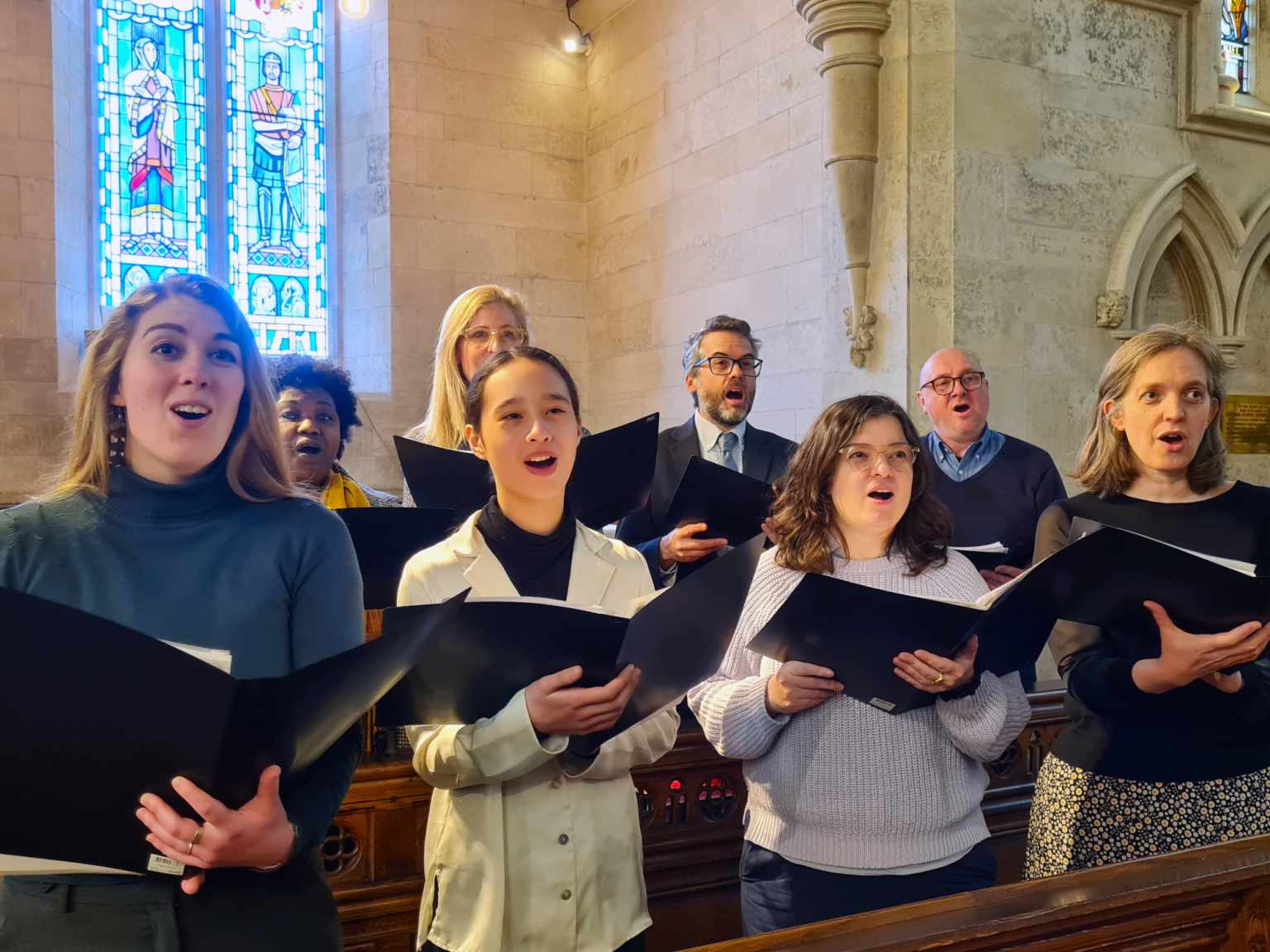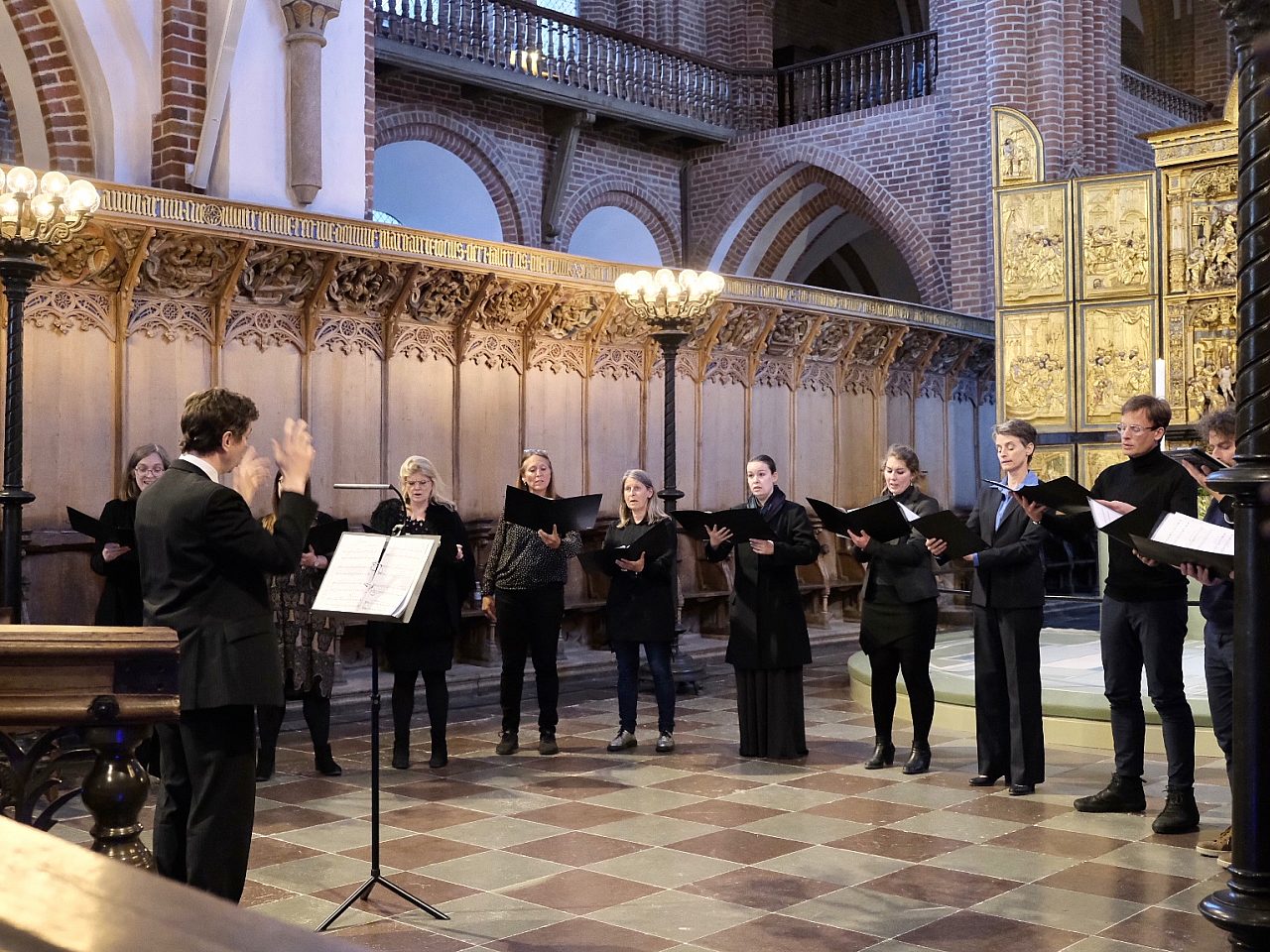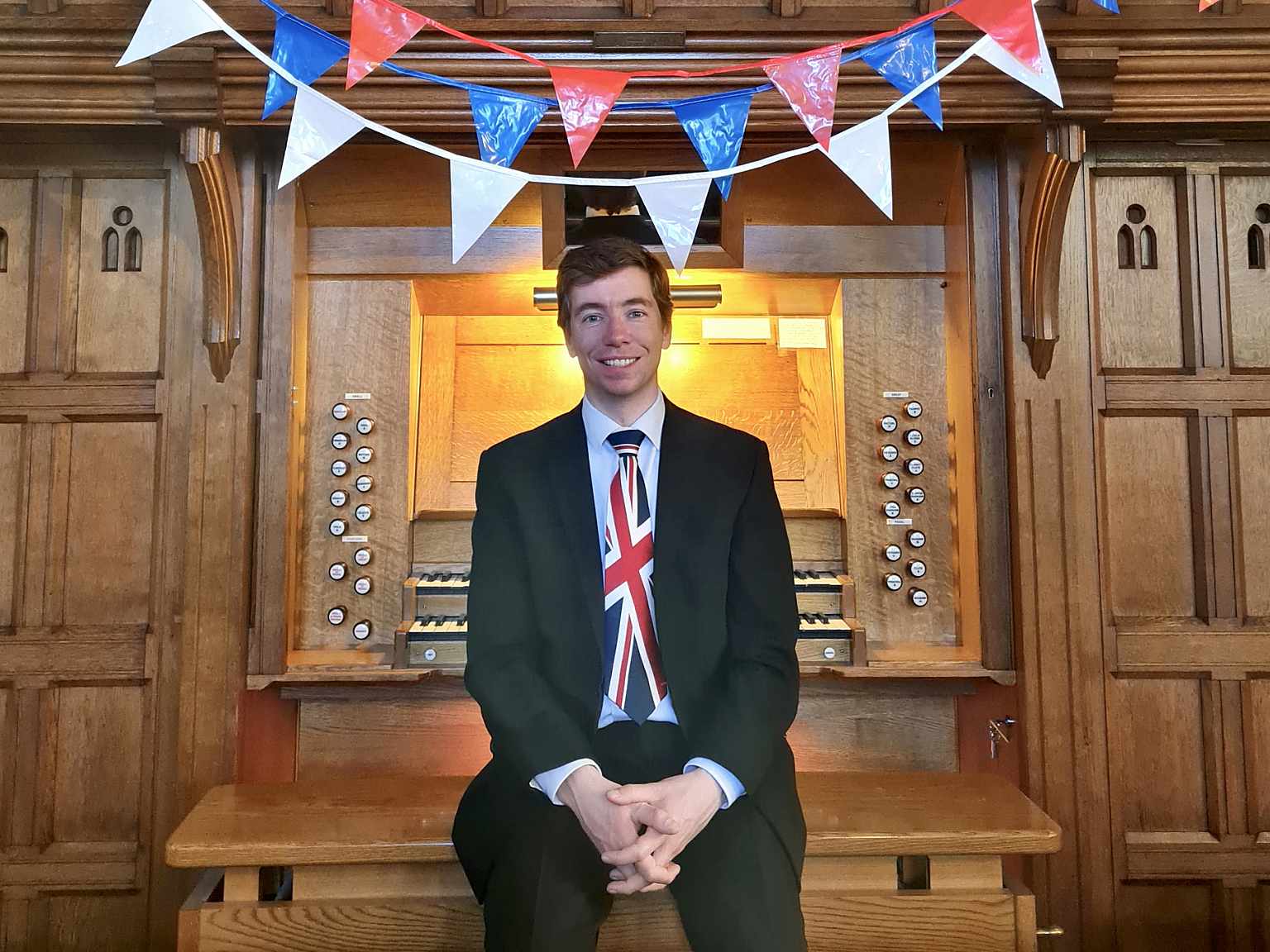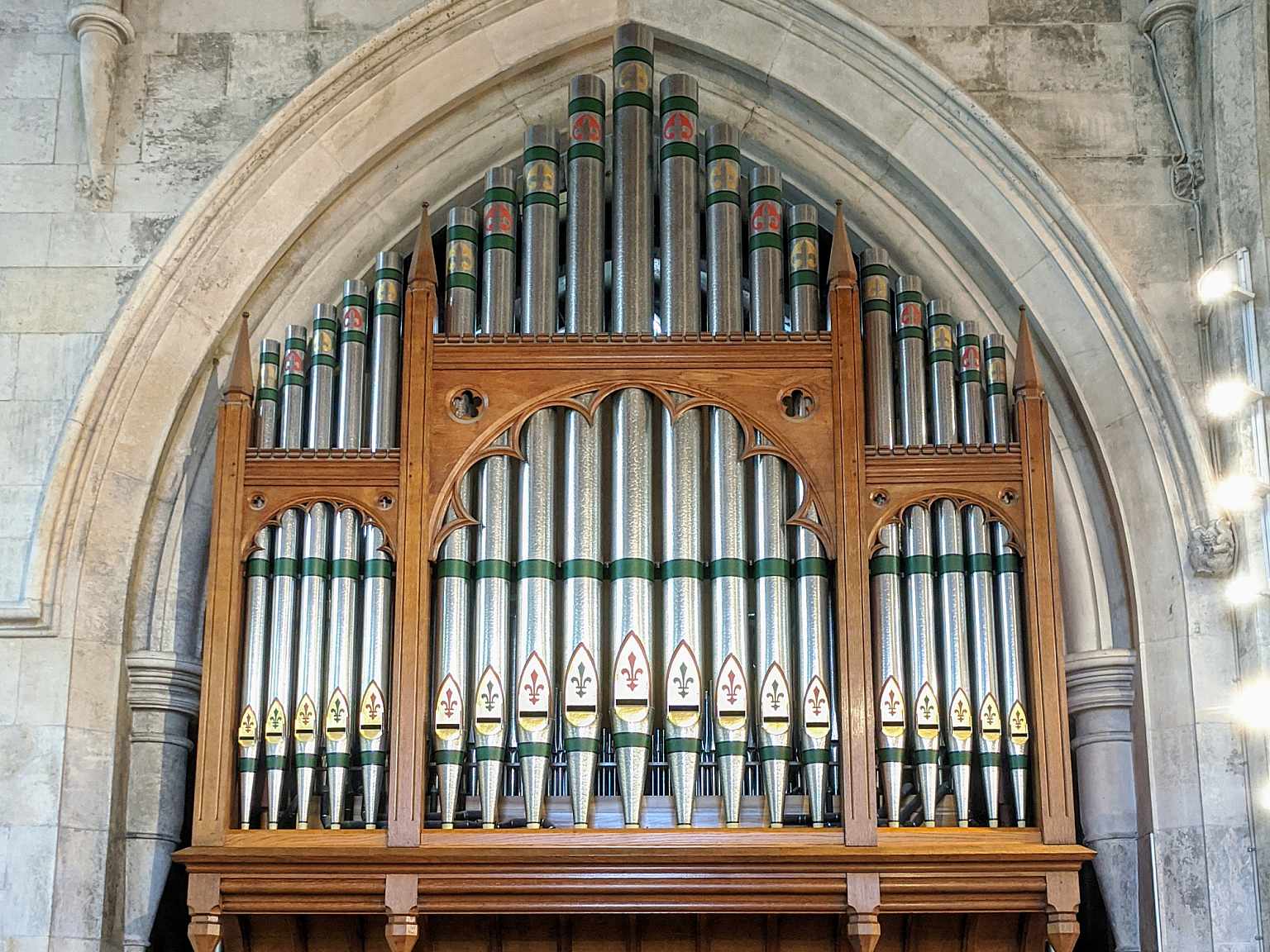Choir & Music
St Alban's Church has many talented volunteer musicians within its community, and is the only place in Denmark that celebrates Choral Evensong in the Anglican tradition.

Bless, O Lord, us thy servants,
who minister in thy temple.
Grant that what we sing with our lips,
we may believe in our hearts,
and what we believe in our hearts,
we may show forth in our lives.
Through Jesus Christ our Lord.
Amen.
Music is an important part of our ministry at St Alban's. We are blessed to have two active choirs that are made up of volunteers from a wide range of musical and cultural backgrounds and experiences, and we have been affiliated to the Royal School of Church Music since it was founded.
Our choirs lead the singing and music at all regular services and special occasions, including Choral Evensong once a month and the annual Service of Remembrance, as well as the Christmas Carol Services which are the pinnacle of the musical year.
Choral Evensong Services
Choral Evensong is from 15.30-16.30 on the first Sunday of most months. Here are the dates for Evensong in 2025:
- Sunday 2nd February
- Sunday 2nd March
- Sunday 6th April
- Sunday 4th May
- Sunday 1st June
- Sunday 6th July
- There will be no Evensong service in August due to the summer holidays
- Sunday 7th September
- Sunday 5th October
- Sunday 2nd November
- There will be no Evensong service in December due to the Christmas Carol Services
St Alban's Church Choir
St Alban's Church Choir leads the congregation in singing the hymns, the Gloria etc., and other congregational pieces at the regular Sunday morning service, accompanied by the organ.
On special occasions the choir also sings an anthem, but the main focus is in leading our multicultural congregation, not all of whom are familiar with the traditional and contemporary hymns and songs of the Anglican church.
Sunday mornings are an excellent opportunity for those with little to no experience of singing in a choir to come along and try it out. There are no auditions and you don't have to be able to read music, but it is a big help if you can. Rehearsals usually start at 9.00 and the service is from 10.30-11.45.

St Alban's Singers
St Alban's Singers is a newer group that sings a service of Choral Evensong once a month for most months of the year, usually at 15.30 on the afternoon of the first Sunday of the month.
Choral Evensong is a unique Anglican tradition practised every day in Anglican churches, chapels, and cathedrals around the world, and features a wide range of beautiful music written specially for this tradition.
For these services, singers from the Sunday morning choir are joined by other members of the Copenhagen choral community, including some professional singers from the Danish church, for a service of high-quality music that cannot be heard anywhere else in Denmark.
St Alban's Singers also sing for some special occasions, such as for an Ecumenical Service for peace in Ukraine, events commemorating the late Queen Elizabeth II, a celebration of the Queen of Denmark's Golden Jubilee, and for the Himmelske Dage Festival in Roskilde Cathedral.

Interested in joining?
We are always keen to hear from those who are interested in joining the choirs.
From those with many years of singing experience to those with little to no past experience at all, our choirs are run in the tradition of a typical Anglican parish church, with ordinary members of the congregation and keen singers from the wider community giving their time voluntarily for a love of singing.
There is a short practice before each service and an extra rehearsal after the last service of each month to look at upcoming music. You can take music away to practise at home, and there is an online diary containing recordings of upcoming music where you can listen to your part and learn it in advance.
Please contact our Organist and Director of Music (music@st-albans.dk) if you would like more information.
Organist & Director of Music
David Allen has been our resident Organist & Director of Music since August 2021. He came to Denmark from the UK, where he worked as a professional musician, conductor, and composer, with a keen involvement in the Anglican musical tradition for many years.
David trained at the University of Oxford and the Royal College of Music, and was most recently Organist as part of the professional music department at St Mary Magdalen, Oxford, for almost 10 years. He is an Associate of the Royal College of Organists and also works as a composer of music for choirs and organs, as well as for film and theatre productions. His award-winning compositions have been performed around the world.
Please get in touch with David if you would like to find out more about joining the choir, or to discuss music for baptisms, weddings, funerals, and other events at St Alban's: music@st-albans.dk

History
The first regular choir in St Alban's was set up in 1884 at the suggestion of the Reverend Charles Moore, consisting of surpliced men and boys under the Danish organist Sophus Wiig. Most of the choir were in fact Danish and therefore singing in a foreign language. The choir grew in numbers and reputation over the next half century under five different organists. In the 1930s the boys (of whom there were about 20) received an annual renumeration of around 40 kr., while the men were unpaid. There was also a "special choir" of ladies, who joined in for special occasions.
During the late 1940s there was much unrest, with complaints over the strictness of the choir masters, burglaries in the crypt, and vandalism blamed on the choir boys. This led to 11 choir members demanding changes from the chairman of the church committee or they would "refuse to sing"!
The surpliced choir was effectively disbanded in the early 1950s and it has consisted of volunteers ever since. The choir was one of the first to join the English School of Church Music and has been an affiliated choir of the Royal School of Church Music since it was founded.
Organ
The organ is still housed in the original casing designed by Arthur Blomfield. It was built by JW Walker & Sons and was in place in time for the consecration in 1887, in a chamber on the south side of the chancel. The "St Alban's Festal March" was commissioned by Arthur Berridge for the occasion. The organ was given by an anonymous donor and was originally hand-pumped, with electric bellows installed in 1928. It was altered several times during the twentieth century (including 1966 and 1985), eventually losing its original character.
In 2004 Harrison & Harrison of Durham undertook a major restoration and rebuild in consultation with Dr Nicholas Thistlethwaite. The new organ has 1,482 pipes, with some of the old pipework being retained and new pipes being added to extend the range of the instrument. The casework from the old organ has been re-used; the new spotted metal front pipes have been decorated by Howell & Bellion.

PEDAL ORGAN
1.† Bourdon (wood) 16
2.† Principal 8
3. Flute 8
4. Fifteenth 4
5. Bassoon 16
I Great to Pedal
II Swell to Pedal
GREAT ORGAN
6. Open Diapason 8
7.† Stopped Diapason (wood) 8
8. Principal 4
9. Chimney Flute 4
10. Fifteenth 2
11. Mixture IV
12. Sesquialtera II
13. Trumpet 8
III Swell to Great
SWELL ORGAN
14. Viola 8
15.† Gedackt (wood) 8
16. Céleste (tenor c) 8
17.† Gemshorn 4
18.† Flageolet 2
19.† Mixture III
20. Cornopean 8
21. Oboe 8
IV Tremulant
ACCESSORIES
Four combination pedals to the Pedal Organ
Four pistons to the Great Organ
Four pistons to the Swell Organ (duplicated by combination pedals)
Reversible pistons: I, II, III
Reversible pedals: I, III
General cancel piston
Coupler: Great and Pedal pistons
The pistons are adjustable, with dual memory
† Pipework from the old organ
The manual compass is 61 notes, the pedal 30 notes
The manual and pedal key actions are mechanical; the drawstop and combination actions are electric.